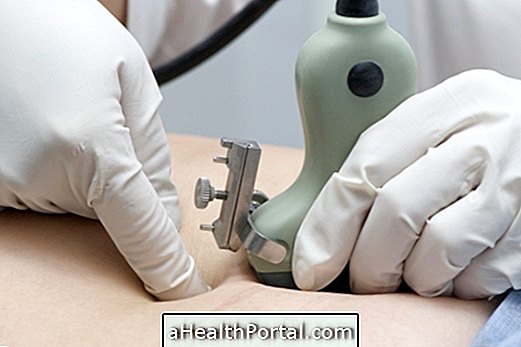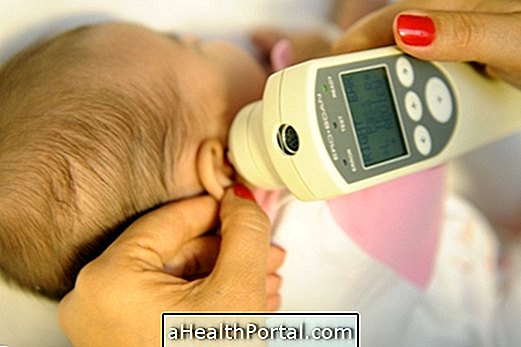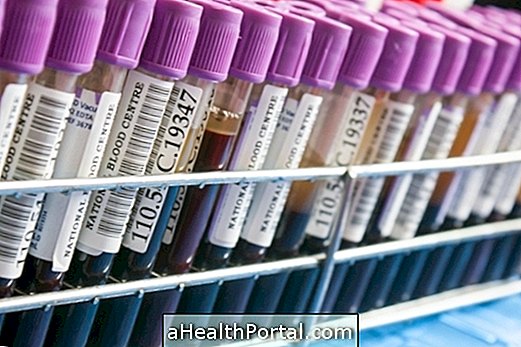Uroculture, also called urine culture or urine culture, serves to diagnose urinary tract infection by detecting which bacteria are involved and the number of colonies.
Normally, for the results to be more accurate, it is advised to collect the first morning urine, however, the examination can be done during the day. The container where the urine is placed should be sterile and can be purchased at the pharmacy, but it can also be provided by the laboratory or hospital where the test will be done and preferably should be quickly closed and taken quickly for laboratory analysis, to prevent contamination.
The antibiogram uroculture examination also gives the names of antibiotics that are sensitive or resistant to bacteria, helping the doctor to prescribe the best medicine. This test can also be called uroculture examination with ATB, which means antibiogram, or uroculture examination with TSA, which means antimicrobial sensitivity test or antibiotics.

How is the exam done?
In order to collect the uroculture examination, a preparation is necessary, which includes:
- Wash the intimate area with soap and water;
- To remove the lips of the vagina, in the woman, and retract the foreskin, in the man;
- Discard the first urine stream;
- Collect the remaining urine into the container itself.
The urine may remain up to 2 hours at room temperature, however, the container should be delivered to the laboratory soon for the results to be more reliable. It is not necessary to be fasting to take the exam.
Another way to collect the uroculture examination can be with the use of catheter, also called urethral catheterization, as a way to ensure a collection that is as free of contamination as possible.
In addition, the doctor may also indicate a puncture directly into the bladder through the skin, which may be necessary for infants or children, where it is difficult to collect urine samples, or for people with very weak immunity, as inserting a catheter can increase the chances of introducing new microorganisms into the bladder of the person.
Result of the uroculture examination
The result of the uroculture examination can be:
- Negative or normal when there is no growth of colonies of bacteria in the urine in worrying values;
- Positive when it is possible to identify more than 100, 000 bacterial colonies . In this case, the result may still show the name of the bacterium and the antibiotics effective or not in the treatment;
- False positive in situations where there is contamination of the urine by other microorganisms, blood or medicines;
- False negative if the subject has a very acidic urine pH below 6, or is taking any antibiotic or diuretic.
The result may still be dubious if the number of colonies is less than 100, 000 and there may be a need to repeat the examination. A result of less than 10, 000 colonies is negligible.
However, it is also necessary for the doctor to evaluate other signs and symptoms that indicate urinary tract infection, to assess what type of treatment is necessary, according to each case. Learn to identify the symptoms that indicate a urinary tract infection and when to see a doctor.

Can other urine tests detect infection?
Although uroculture is the primary test to diagnose urinary tract infection, the common urine test, also called urine type 1, EAS or urine routine may also provide some evidence of urinary tract infection, such as the presence of bacteria, pyocytes, leukocytes, blood, positive nitrite or changes in color, smell and consistency, for example.
Therefore, the doctor can evaluate the result of this examination and observe the symptoms and physical examination of the patient to identify the infection, without necessarily requesting the uroculture, because it is a simpler examination and the result is faster, since the uroculture can take time up to 3 days to get ready. Learn more about what the urine test is for and how to do it.
However, uroculture is necessary, mainly, to determine if the antibiotic used is the one indicated, to identify the bacteria in cases of repeated infections, pregnant women, the elderly, people who will undergo urinary tract surgery, or when there are doubts it is a urinary tract infection, for example.
Examination of uroculture in pregnancy
The uroculture examination is done in pregnancy for the obstetrician doctor to assess whether or not the pregnant woman has a urinary tract infection that if not properly treated can lead to premature delivery.
The uroculture examination does not detect pregnancy, only if the pregnant woman has a urinary tract infection, but there is a specific urine test to detect pregnancy through the amount of the hCG hormone in the urine.




















